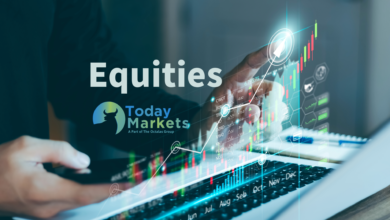
- Asian markets traded mixed with a cautious tone as U.S. trade tariff concerns and high interest rates weighed on sentiment. The Hang Seng surged over 3% led by technology stocks, while Japanese markets remained flat and Chinese mainland indices showed muted performance.
- Alibaba Group’s Hong Kong shares soared 8.5% after strong December quarter earnings, sparking a broader rally in Chinese tech stocks. The company’s cloud division showed robust growth driven by AI initiatives, while confirmation of an Apple partnership for AI features in Chinese iPhones further boosted sentiment. News of Ryan Cohen’s $1 billion stake also supported the stock.
- Japanese inflation accelerated in January, with core CPI rising 3.2% year-on-year, exceeding expectations of 3.1%. Overall inflation jumped to 4.0%, driven by surging food prices including a near tripling of cabbage costs. The data reinforced expectations for further BOJ monetary tightening, though Japanese bond yields eased after Governor Ueda pledged to address abnormal market movements.
- Moody’s downgraded Nissan Motor’s credit rating to junk status (Ba1 from Baa3), citing weak outlook and restructuring challenges. Separately, reports emerged of a high-level Japanese group proposing Tesla invest in Nissan following failed Honda merger talks, potentially leveraging Nissan’s underutilized U.S. plants amid tariff threats.
- Oil prices steadied with Brent at $76.45 and WTI at $72.44, heading for their strongest weekly gains since early January. JPMorgan noted global oil demand averaged 103.4 million bpd through mid-February, while supply disruptions persisted with the Caspian Pipeline reporting 30-40% reduced flows following a Ukrainian drone attack.
- EU Energy Commissioner Dan Jorgensen announced plans to increase gas imports from the U.S. and other sources to replace Russian supplies, while accelerating renewable energy expansion. The move comes as European gas prices reached two-year highs and amid pressure from Trump’s tariff threats.
- Gold retreated from record highs but remained on track for an eighth consecutive weekly gain, supported by trade war concerns and dollar weakness. Spot gold traded at $2,925.06 while futures settled at $2,941.49, with the precious metal gaining about 1.6% for the week.
- The euro held steady at $1.049 ahead of Sunday’s German election, following the collapse of Chancellor Scholz’s coalition. Markets await February PMI readings from the eurozone, Britain, and the U.S., which could show early impacts of Trump’s tariff threats on business activity.
- Copper headed for weekly losses despite recent AI-driven enthusiasm, with LME futures at $9,522.80 per ton and March futures at $4.5750 per pound, both down about 1.9% for the week as China rally momentum cooled.
- The Japanese yen weakened to 150.35 per dollar despite strong inflation data, as officials moved to temper expectations of aggressive BOJ tightening. Finance Minister Kato warned about the impact of rising bond yields on government spending, cooling market speculation about imminent rate hikes.
The material on this page does not constitute financial advice and does not take into account your level of understanding, investment objectives, financial situation or any other specific needs. All information provided, including opinions, market research, mathematical results and technical analyzes published on the Website or transmitted To you by other means, it is provided for information purposes only and should in no way be construed as an offer or solicitation for a transaction in any financial instrument, nor should the information provided be construed as advice of a legal or financial nature on which any investment decisions you make should be based exclusively To your level of understanding, investment objectives, financial situation, or other specific needs, any decision to act on the information published on the Website or sent to you by other means is entirely at your own risk if you In doubt or unsure about your understanding of a particular product, instrument, service or transaction, you should seek professional or legal advice before trading. Investing in CFDs carries a high level of risk, as they are leveraged products and have small movements Often the market can result in much larger movements in the value of your investment, and this can work against you or in your favor. Please ensure you fully understand the risks involved, taking into account investments objectives and level of experience, before trading and, if necessary, seek independent advice.





